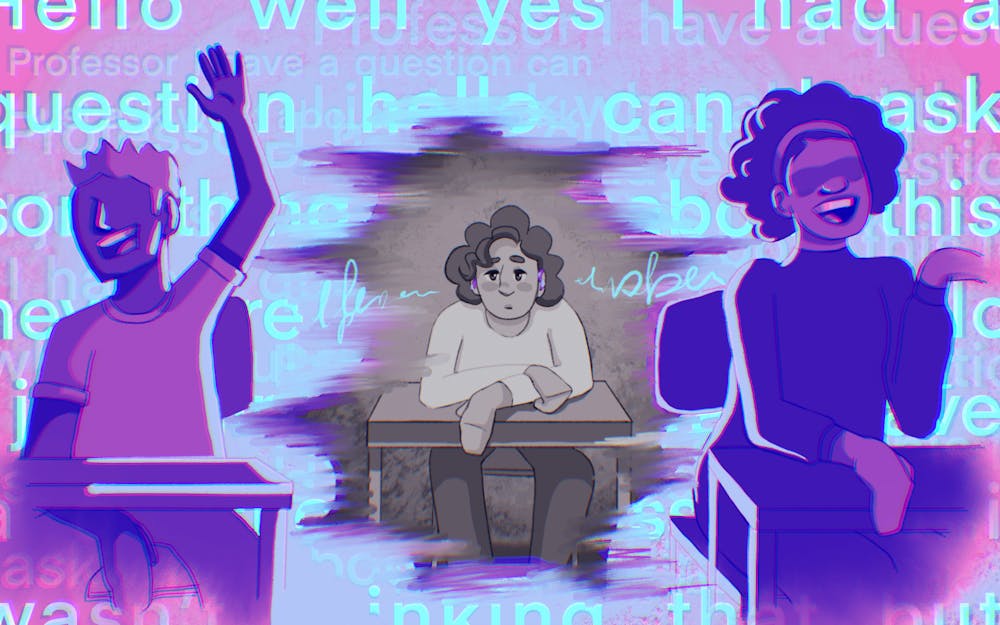Over the last few weeks, multiple students have begun speaking out about disability accommodations at IU. Many students at IU work with the Disability Services office to get accommodations, including in-person captioning, accessibility vans, extended test time or anything else they might need to succeed in classes. Some of these students feel like accommodation is not being provided.
Junior Paige Barnes is one of the students speaking out after her experience as a hearing disability student. Barnes is hard of hearing and uses accommodations such as captioning, sitting close to the professor, and extra opportunities to ask questions or have something repeated for her.
However, according to Barnes, many of these accommodations are not being met.
Barnes said, more often than not, her professors have not read the advanced accommodation emails sent at the beginning of the semester, informing them one or more of their students will need accommodations. With no accommodations being provided in the first couple of days, Barnes will send a follow up email to ensure her professors are aware of her disability.
“One professor said they never received the email and another one said he saw it and just didn’t read it,” Barnes said.
According to the Director of Disability Services for Students, Drew Bogenschutz, the advanced notification email is sent very soon after priority registration the previous semester. This provides professors ample time to prepare accommodations, which can take a couple of weeks to complete.
If professors wait until the beginning of the semester to gather these accommodations, it can leave students with disabilities without necessary accommodations in the classroom such as captioning on videos, live in-person captioning, and alternate format books.
The lack of accommodation has started to affect Barnes’ education. She said it has made it extremely difficult to follow class lectures and it has become frustrating to try to learn. The lack of assistance and acknowledgement makes it feel like the professors do not care — something Barnes feels is connected to a lack of empathy.
“It makes me feel like they don’t really care about individual students and it’s more about those without disabilities,” Barnes said.
According to Barnes, Disability Services for Students has taken steps to help students, but at a certain point the responsibility lies solely with the professor
“At some point, there is nothing else they can do,” Barnes said. “It comes down to the professor.”
Sophomore Taylor Blum said DSS has been helpful by getting captions for videos and lessons. Blum, a student in the Theater department, believes most professors are more receptive to the accommodations than they may be in other departments.
However, she also recognizes that other departments may be less accommodating in providing disability services and other students may feel much stronger about the topic.
Bogenschutz, said throughout the semester DSS works to provide students with the resources and tools to succeed.
The DSS website provides a list of resources available to students with disabilities including accessible van services and adaptive technology that alleviate the effects of vision, hearing, cognitive and mobility impairments.
Along with this, DSS gives every student who comes through their office a five-page resource packet that includes university resources such as the Student Academic Center, private tutors, tutoring groups and much more, Bogenschutz said.
According to the IU accessibility website, “Federal law and IU policy prohibits discrimination against students with disabilities, and faculty and instructors are required to provide approved student accommodations.”
Federal law, Section 504, requires a school district to provide a “free appropriate public education” to qualified students with a disability, regardless of the nature or severity of the disability.
According to the Office of Civil Rights, “FAPE consists of the provision of regular or special education and related aids and services designed to meet the student's individual educational needs as adequately as the needs of nondisabled students are met.”
According to the Office of Civil Rights, if a district or individual is out of compliance with section 504, students or guardians can file a complaint and OCR can take action through negotiation voluntary compliance or further action if needed.
DSS assigns many students a coordinator who is responsible for helping students reach their professors and ensuring they receive their accommodations, Bogenschutz said. If a professor does not respond to the email or is resisting the accommodations, Bogenschutz says students should reach out to the coordinator.
“Let us do the heavy lifting to assist people with getting the resources they need,” Bogenschutz said.
However, Bogenschutz said there are always going to be challenges. As much as DSS may try to ensure support, he said some professors may resist. Whether this is because they don’t know how to accurately provide the accommodation or another reason, the coordinators can reach out and attempt to get through to the professor. They also can reach out to department chairs or someone else within the department to get in contact with the uncomplying professor.
“We’re always working in the direction of trying to improve our office and trying to improve the services we’re providing,” Bogenschutz said.
Barnes asks that professors be held accountable.
“For some professors this is a lack of awareness,” Barnes said. “For others, it’s a lack of caring.”




